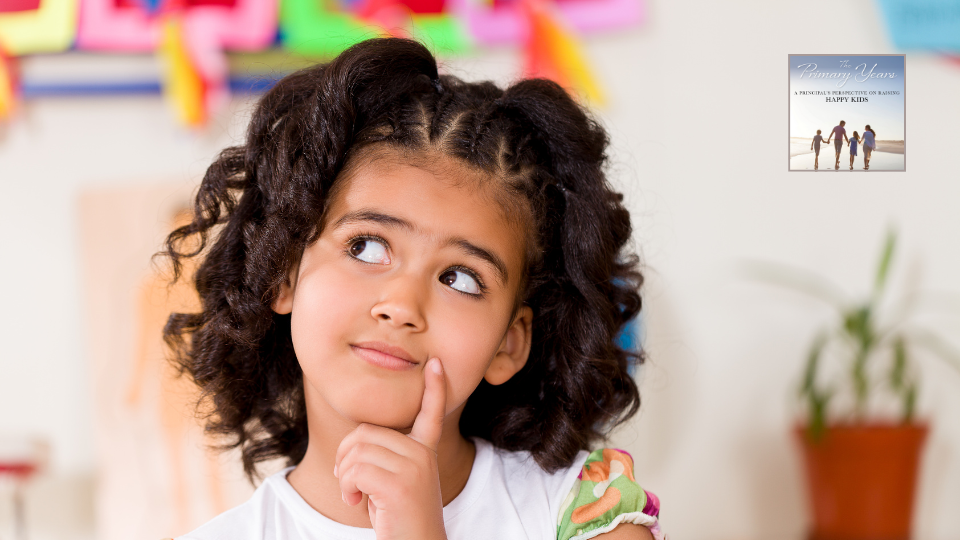Teach your child to be a thinker.
Our children will face a future of complex challenges. Instead of giving them the answers, our most crucial role is to teach them how to think, not what to think. When children learn to think for themselves, they gain ownership over their learning and a powerful sense of confidence. This ability to reason and problem-solve is the tool that will truly prepare them for the world ahead. Let's empower them to become the resilient thinkers of tomorrow.
Our children will confront many different challenges in the world they will grow into. The more they take ownership of their own thinking, the more confidence they gain in their ability to understand the complex world in which they live.
Thinkers Cope Better with Change
The world your child will grow into is unpredictable, new jobs, technology, and challenges that don’t even exist yet. Rote learning quickly dates; thinking skills endure.
Example: A child who learns how to think can adapt when the math method changes or a group project falls apart. They don’t panic, they problem-solve.
If we teach children to think flexibly, they’ll always find a way forward even when the rules change.
Thinking Builds Confidence, Not Just Compliance
When children are taught to ask why and how, they begin to trust their own judgement. This creates quiet confidence.
Example: A student who questions a story’s ending or tries a new way to solve a math problem learns to value their ideas, not just repeat someone else’s.
Confidence grows when children realize their minds matter.
Thinkers Are Better Problem-Solvers
Life doesn’t hand out answer sheets. Children who can reason, explore, and test ideas handle mistakes and frustration more constructively.
Example: When a child forgets their lunch or loses a friend’s trust, a “learner” might freeze but a “thinker” looks for solutions: “What can I do next time?”
Teaching thinking teaches children to turn problems into plans.
Curiosity Drives Lifelong Learning
The best learners are those who want to know more. Curiosity keeps the spark alive long after school ends.
Example: A child who wonders “why do rainbows curve?” or “how does Wi-Fi work?” learns far more than one who studies only for a test.
Grades fade, but curiosity fuels a lifetime of discovery.
Thinkers Show Empathy and Perspective
True thinking isn’t just academic, it’s emotional and social. When children think deeply, they begin to understand how others feel and see things from multiple sides.
Example: A child who pauses to ask “why might my friend be upset?” is using empathy, one of the most advanced forms of thinking.
Thinking hearts make thoughtful humans.
“Children must be taught how to think not what to think”
Relax, Parents: Childhood Is a Long Journey, Not a Sprint
Parents often feel the pressure to be perfect, but raising children is really about creating a space where they feel trusted and free to grow. Allow them to try, even if they struggle, because each small moment of autonomy builds lasting confidence. Your calm presence is the foundation they need to learn, stumble, and thrive.
Parents often feel the weight of “getting it right” every single moment. The truth is, raising children isn’t about perfect reactions in every situation, it’s about creating an environment where children feel trusted, respected, and free to grow into themselves. There is no rush. Growing up takes time.
Children are Smarter Than We Think
Your child notices how you response, whether you micromanage or step back with calm confidence. When you treat them as intelligent individuals, they rise to it. For example, a 6-year-old asked to help set the table may not place the cutlery perfectly, but the pride in their independence is far more valuable than straight forks.
Independence is Built in the Small Moments
Children naturally want to do things “by myself.” That’s not defiance, it’s growth. Let them tie their shoes (even if it takes forever) or choose their outfit (even if it clashes). Every act of independence you allow teaches problem-solving and confidence. They are happier in themselves when seeking independence.
Relaxing Builds Trust
When parents hover, children feel doubt: “Maybe I can’t do this.” But when you relax and show faith in them, they learn resilience. Think of a parent at the playground: one hovers nervously at every step; another watches from a distance, ready if needed. Which child is more likely to climb, fall, try again, and succeed? Have more confidence in your child and yourself.
The Long Haul Matters Most
Childhood isn’t about who reads first, ties shoes fastest, or gets perfect grades early on. It’s about building a foundation of security, curiosity, and persistence. Relaxing now allows your child to explore, stumble, and develop the strength they’ll need later in life.
So the next time you feel like correcting, rushing, or fixing, pause. Take a breath. Smile. Remember: parenting is a marathon, not a sprint. And sometimes the best gift you can give your child is the freedom to try, fail, and learn, while you watch with calm confidence.
“When little people are overwhelmed by big emotions’ it’s our job to share our calm, not join their chaos.”



